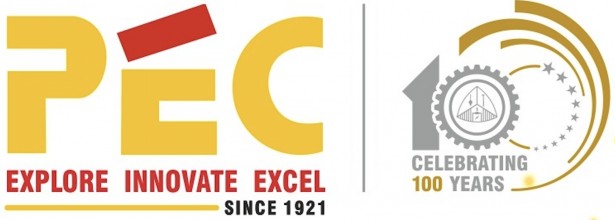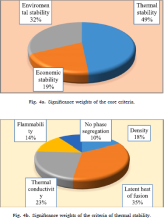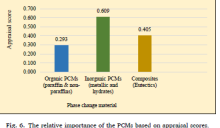Analyzing the thermal, economic, and environmental dynamics of phase change materials used in cold chain applications.
| Abstract | Cold chain (CC) operations are highly energy intensive and require a continuous energy supply to maintain a requisite temperature range of the product’s surroundings. However, in case of a mismatch between the energy supply and demand, the product might lose its quality and potency, leading to health insecurity for consumers (such as in the case of vaccines and food). Phase change materials (PCM) are one of the most imperative solutions to situations where frequent power shortages and uneven energy distribution cause thermal instability in the CC. This study aims to explore and evaluate the performance of the most commonly used PCMs in CC applications under the ten most significant selection criteria. The selection criteria are categorized based on thermal, economic, and environmental stability. The empirical assessment has been conducted using the BWM-based EDAS integrative MCDM approach. The findings of the study show that thermal stability is the most dominating selection criterion in selecting the most appropriate PCM for CC applications. The key discoveries of the study also demonstrate that inorganic PCM (metallic and hydrates) is the best-suited PCM relative to the significant weights of the selection criteria. |
| Faculty |
Mohit Tyagi
|
|
mohitmied@gmail.com
|
|
| More Information | DOI: 10.1016/j.matpr.2023.08.049 |








